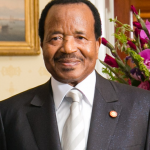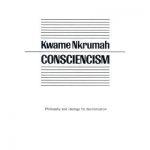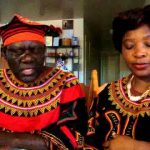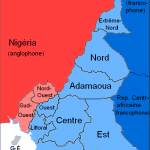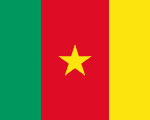After having given the theoretical framework through we understand the poem, we will now analyze its four main themes. These four themes can be found throughout the work. Taken together, they constitute Vakunta’s perspective on Cameroon. The themes are as follows: criticism of elected representatives, identity crisis, optimism and unity, and pessimism. All themes can be read as expressions of the search for identity. In an interactive presentation, we explain references and offer our reading of the poem.
Criticism of elected representatives
In these lines Vakunta addresses politicians and political institutions in Cameroon. According to him, the lack of well-functioning democratic institutions is an essential part of the contemporary problem. An important issue is that Cameroonian people do not recognize themselves in the politicians; Cameroonian politicians are there to represent the Cameroonian people, but who are they? It is not clear who a Cameroonian is, so it is impossible to represent that group.
In this section, Vakunta addresses the identity crisis underlying the Cameroon Crisis, and the anti-Anglophone discrimination that it has brought about. It becomes clear here that a Cameroonian national identity is lacking; Vakunta tries to show that Cameroonians have no idea what it means to be Cameroonian. While this is the case, this section moves in a dialectical way towards Cameroonian unity. It shows that, despite all the differences and difficulties, Vakunta still aims at and believes in Cameroonian unity. Moreover, because the discrimination of Anglophone Cameroonians is a traumatic event, this section is especially adequate to be understood through the framework of historical wounds.
The third theme of the poem is related to the ideology of Nkrumah. Although Vakunta is critical and pessimistic about Cameroon in many parts of the poem, the following lines offer an optimistic sound. In contrast to the lines in which he criticizes elected representatives, these lines mostly refer to the effects of colonialism, not directly mentioning the role of Cameroonian politicians. Vakunta has in mind a project for a renewed Cameroonian conscience; with this conscience peaceful unity between the Anglophone and Francophone communities and the elimination of colonial ties will be possible. He also highlights the importance of action; without action none of the above can be realized.
After all the criticism, optimism and calls for unity in the past lines, Vakunta ends his poem in a paradoxical way: he describes his departure from Cameroon. In reality, Vakunta moved to the United States and is part of a growing group of emigrating Anglophone Cameroonians. In the section that follows, he is very pessimistic about the future of Cameroon, which stands in stark contrast with his optimism and calls for unity of previous lines. He also mentions a number of revolutionary pro-reunification Cameroonians, who have either been killed or fled the country as well. He turns his back to Cameroon and its crisis. He did not succeed in finding a Cameroonian identity and thus decides to leave the country, looking for an identity elsewhere.
Please find below the poem annotation and related articles. We suggest reading the part on Poetic Consciencism next.




